Richard Okorogheye: Prank callers told best friend they found his body
- Published
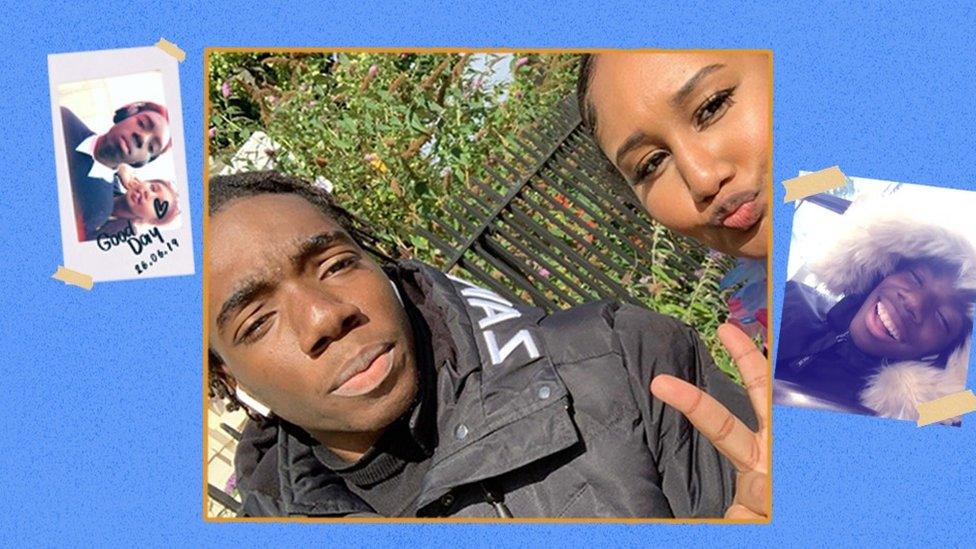
"He would do anything to push you to be your best self. He would want you to succeed before he would succeed."
Hala Mohamed is describing her childhood friend Richard Okorogheye.
They grew up together in the same west London block, where on summer days the "whole neighbourhood" would wake up early "just to go downstairs and play".
Hala and Richard used to walk to school together, listening to music and talking about his dream of going to America.
On 22 March Richard was reported missing by his mum after leaving his family home in Ladbroke Grove. Two weeks later the 19-year-old's body was found in a pond in Epping Forest.
Listen to Hala's story on If You Don't Know, a new podcast from BBC Radio 1Xtra.
Richard's disappearance went viral on social media, with Hala getting Richard's name out and raising awareness after feeling like the police weren't doing enough.
"They could've checked CCTV earlier, they could've taken us seriously earlier instead of just saying it like 'he's an adult, he's fine, he'll be with a friend'."
The Met Police is now being investigated by the Independent Office for Police Conduct (IOPC) over whether Richard's ethnicity had anything to do with the way they handled the case.
'It was crazy'
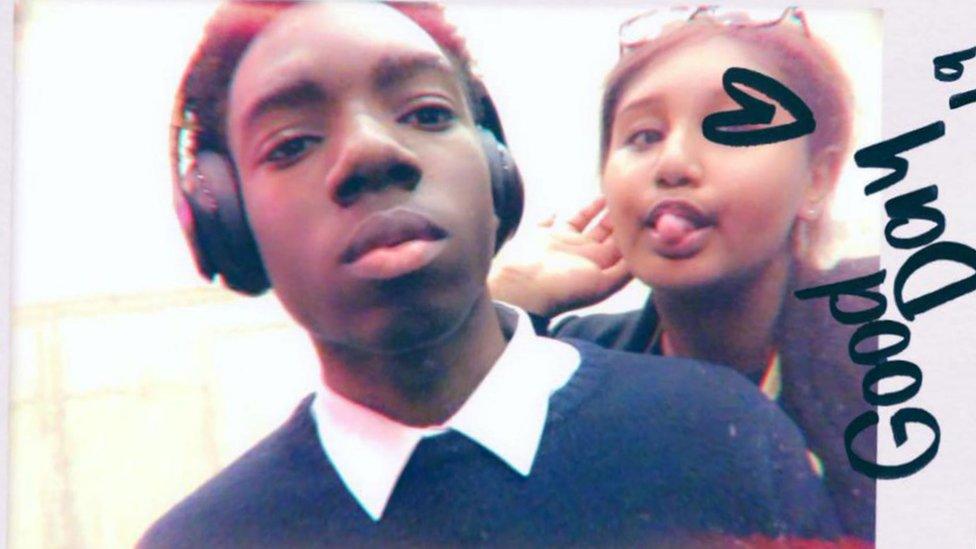
Hala and Richard grew up together in the same building
Hala put her number on the images of Richard being shared across Instagram and Twitter and says she couldn't sleep through the night without receiving phone calls. It was "constant" and "overwhelming".
"It was a lot of people saying if I need anything they'll help. But a lot of them were continually asking me, 'save my number and update me. I want to know what's going on'."
"They would say 'me as a mother I'm worried and I want to know what's going on'. And I was just like, 'I can't update every single one of you'."
Hala says it's "crazy" how much social media can help. But it showed a much darker side too.
"There were prank calls, really stupid prank calls from people saying I've seen Richard or I've found his body, that kind of stuff."
"I continuously would text my friends and be like 'I can't handle this anymore, it's too much for me'. Because in a stupid way it gave me hope."
"I could barely sleep because every time I'd sleep I'd get a call and think even though it's no caller ID maybe it's the police or maybe someone did find something. So I couldn't just let calls go, I had to answer every call that I could."
Evidence Joel, Richard Okorogheye's mother: "He loved life, he had plans, he had aspirations"
Although investigations are still being carried out, Hala says his disappearance doesn't make sense to her.
"Richard would never do that, he would never just leave without saying something."
"Honestly I think someone else was involved in what happened to him."
Police do not believe anyone else was involved.
Going missing is a 'symptom'
Between 2019 and 2020 Black people made up 14% of missing people cases in England and Wales, despite making up just 3% of the population, according to the National Crime Agency, external.
In other countries where ethnic minorities are overrepresented in missing people stats "social exclusion theory" is suggested as a potential reason, says Dr Karen Shalev Greene from the University of Portsmouth's Centre for the Study of Missing Persons.
"If you have populations where opportunities are not as open as to the rest of us they will suffer financially, resources will be more limited for support, trust in the support might be less, so you start to have a build-up of stress."
Dr Shalev Greene says this could lead to mental health issues, which research suggests is the biggest reason adults go missing.
"If you have a population already under an enormous amount of stress, you will have more symptoms showing, and going missing is one of them."
As well as having sickle cell disease, Richard told his mother that he was '"struggling to cope" with university.
"He would say that uni was a lot," Hala told the If You Don't Know podcast. "All of us thought university was too much - the workload, not understanding what's going on in a lecture, not having someone to talk to…"
"But he never said anything about him being depressed or feeling a certain type of way."
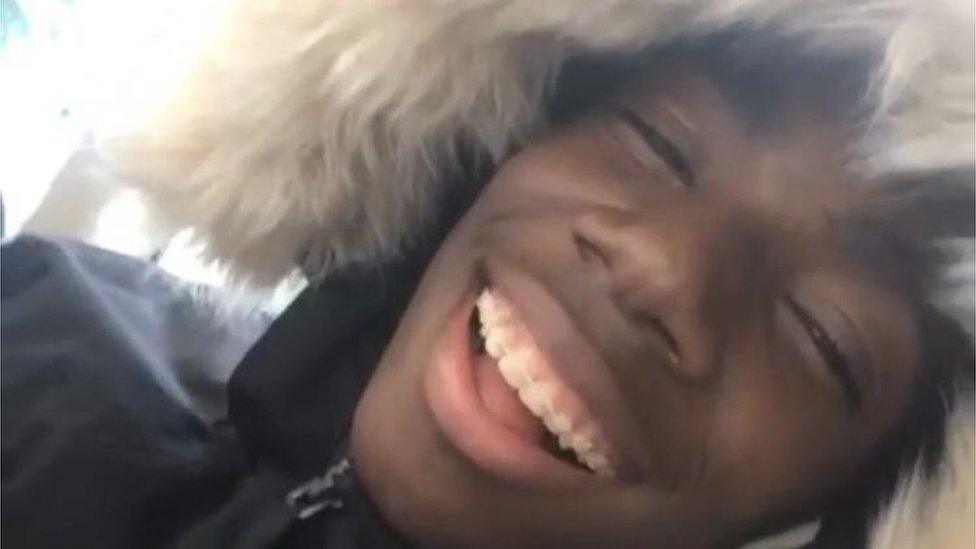
Hala co-ordinated the social media campaign to find Richard
Nearly one month since Richard's body was found, Hala is still struggling to come to terms with life without her best friend.
"As nice as it is for people to send me messages saying 'sorry for your loss', it's still too much for me."
"I wasn't in the best shape, I'm still not. I'm still trying to push past it."
With her friend gone, Hala is determined that the world knows who Richard Okorogheye was.
"He was amazing, loving, he cared about all his friends.
"He would want anything for his friends, his family. He would do anything for us."
If You Don't Know is a new BBC 1Xtra podcast hosted by De-Graft Mensah and Roshan Roberts, where we go deeper into the stories we're all talking about. Subscribe on BBC Sounds for new episodes every week.
For help and support on mental health visit the BBC Advice pages.
- Published26 April 2021
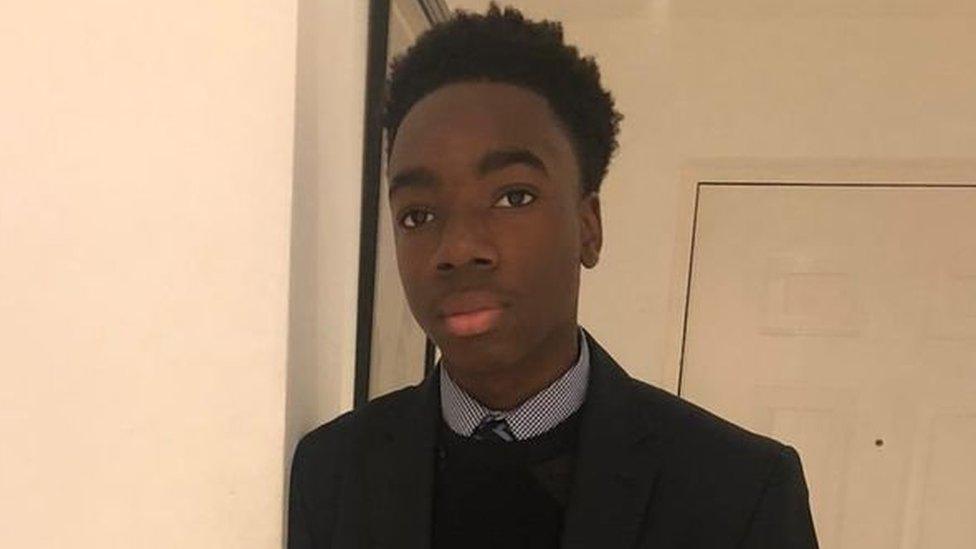
- Published6 April 2021
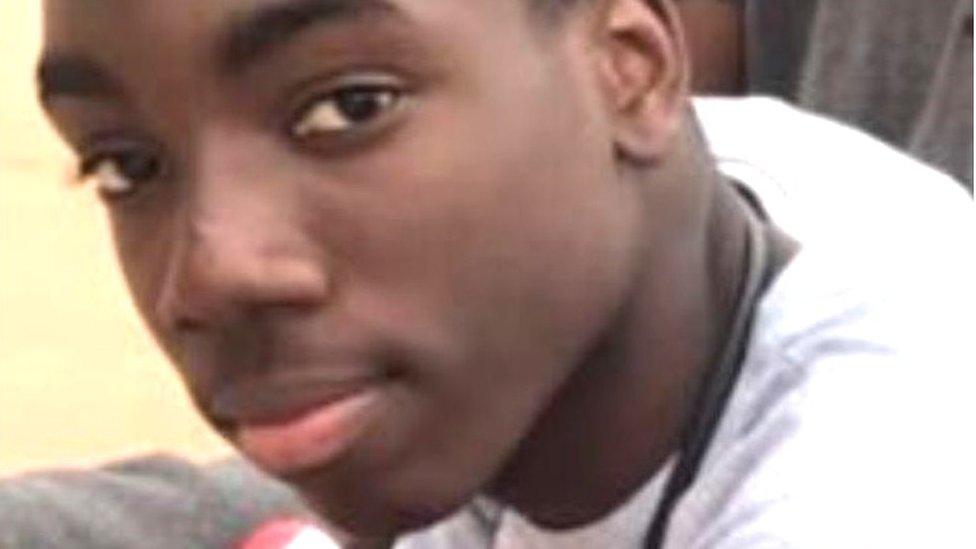
- Published30 March 2021
